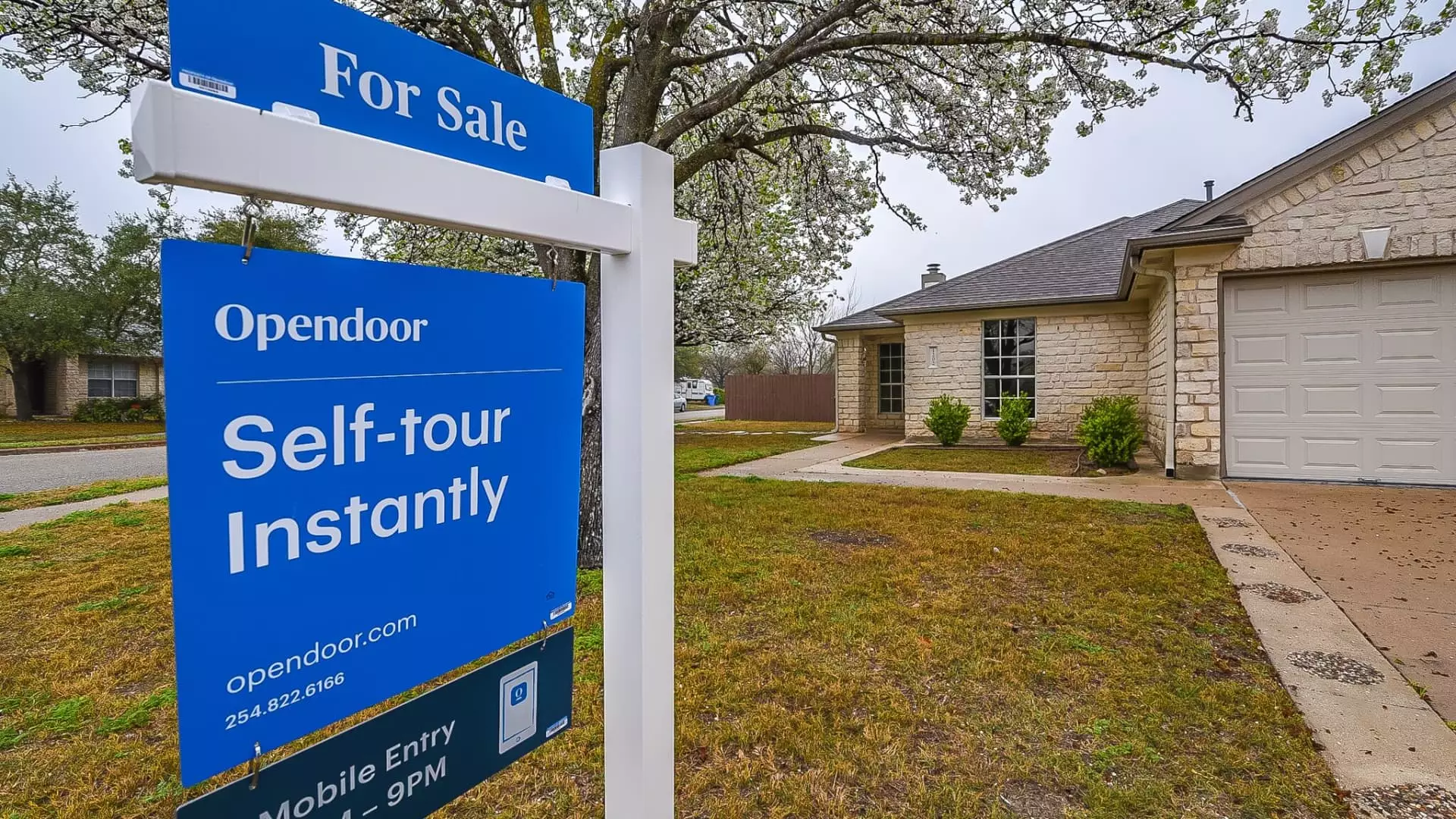Opendoor’s recent stock rally masks a tumultuous history marked by dramatic lows, strategic missteps, and a fragile recovery pathway. Once a darling of the COVID-era housing boom, the company rapidly became a cautionary tale of how market whims, macroeconomic shifts, and internal mismanagement can destabilize even the most ambitious ventures. Its stock, which had plummeted to a staggering 51 cents in June, demonstrates how quickly investor confidence can evaporate amid rising interest rates and falling home prices. Now, after a significant rebound fueled by hedge fund optimism and renewed interest, the valuation still appears fragile at best, echoing a broader question of whether Opendoor’s turnaround is built on genuine fundamentals or transient hype.
Economic Winds and Their Impact
The collapse in demand for homes—exacerbated by climbing interest rates—struck a heavy blow to Opendoor’s core business. As borrowing costs surged in 2022, both individual consumers and institutional buyers retreated, causing revenue to plummet from over $15 billion to under $6 billion within a year. This decline was magnified by the company’s reliance on an “iBuying” model, which thrives on rapid transactions and a receptive housing market. When market conditions shifted, the model’s inherent vulnerabilities were exposed. The company’s attempt to navigate these turbulent waters has been marked by layoffs, reduced marketing spending, and strategic recalibrations, painting a picture of a company fighting for survival rather than thriving.
Market Sentiment and the Power of Selective Optimism
The recent spike in Opendoor’s share price has been heavily driven by speculative interest, notably from hedge fund manager Eric Jackson, who publicly expressed confidence in a future valuation as high as $82 per share. Such optimism, however, must be tempered with skepticism. Jackson’s projections lean heavily on assumptions of a return to revenue growth and market share expansion, but the company’s latest earnings paint a different picture. With revenues falling by over a third and extensive guidance warning of continued declines, the reality of a battered business remains evident, suggesting that the recent rally may be more about investor sentiment than solid operational evidence.
Striking a Balance Between Short-Term Pain and Long-Term Strategy
Opendoor’s leadership acknowledges the need for fundamental change, emphasizing a strategic pivot from capital-intensive iBuying toward a more sustainable referral-based model. This transition marks a major conceptual shift—moving away from attempting to buy and flip homes rapidly, towards generating revenue through partnerships and referrals that require less upfront capital and risk. It’s a recognition that the old growth model may no longer be viable in the current economic environment. Yet, such a shift is easier to announce than execute, especially when the company’s financial health remains fragile and investor patience is limited.
The Reality of Industry and Market Conditions
Despite calls for strategic transformation, the housing market’s current sluggishness continues to hinder momentum. Persistently high mortgage rates have suppressed demand, leading to an increase in listings and a drop in home buyer activity. This environment does not favor rapid expansion or profitability for companies like Opendoor that depend on high transaction volumes. The company’s cautious guidance—projecting significant revenue declines and a reduction in home acquisitions—reflects an acute awareness of the ongoing challenges. For now, the focus seems to be on weathering the storm rather than celebrating short-term gains.
The Path Forward: Strategic Clarity or Further Hype?
Opendoor’s recent efforts to clarify its strategy and improve transparency represent a notable step forward. CEO Carrie Wheeler’s comments about listening to investor feedback and expanding into less capital-heavy business lines show a willingness to adapt. However, whether these efforts are enough to sustain investor enthusiasm remains uncertain. The intersection of macroeconomic headwinds, internal transitional challenges, and a still-inflated stock from speculative investors creates a volatile environment. For long-term success, Opendoor must deliver tangible improvements in operations, demonstrate resilience in a tough market, and convince skeptics that the company’s pivot is more than just a strategic buzzword.
In essence, Opendoor’s story exemplifies how a company with innovative ambitions can stumble amid external shocks, yet still possess the potential for reinvention if it carefully manages market realities, internal shifts, and investor expectations. The road ahead is fraught with risks, but also ripe with opportunities for those willing to navigate the complex landscape of a housing market in flux.


Leave a Reply